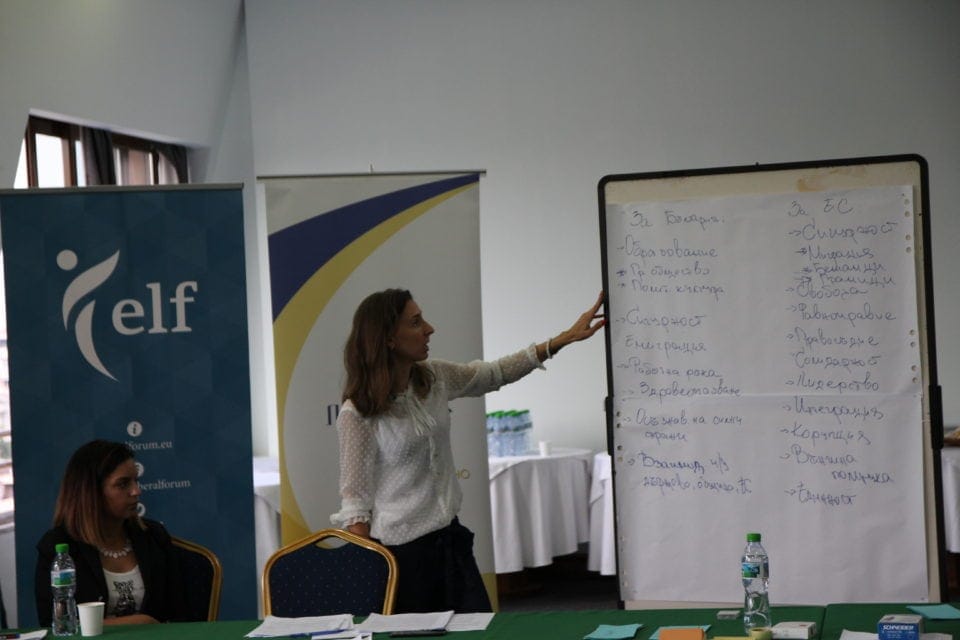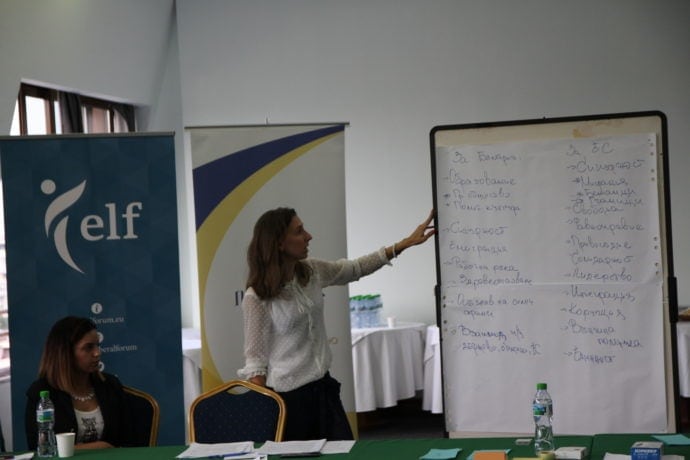The Liberal Messages for Europe workshop took place on 15 June 2018 in the second largest city of Bulgaria, Plovdiv, and was the first out of five fact-finding workshops within the ELF workshop series in the country. This series of events is a part of the annual ELF Project Liberal Messages for Europe, supported by the Project Office for Southeast Europe of the Friedrich Naumann Foundation for Freedom and implemented with local partners in Romania and Bulgaria in June and July 2018.
In compliance to the overall objective of the project, this workshop managed to foster a dialogue to understand the expectations of liberal minded persons without party affiliation about the future of the European Union, the challenges ahead, and the proactive response needed. The participants from different social and professional background were eager to share their opinion on issues related to Bulgaria’s membership and contribution to the EU. A structured discussion on EU’s role for national states allowed for the identification of the exact citizen’s expectations from the EU–a stronger and more definitive role in education, healthcare, improvement of the labour market, security, and migration. For Bulgaria in particular, a stronger role of the EU institutions for the improvement of the national judiciary and the better consolidation of the Rule of Law is expected. Therefore, the Bulgarian public is highly in favour of stronger EU administration and further deepening of the horizontal and vertical integration. Common EU mechanisms for guaranteeing the common EU values, such as linking the provision of cohesion funds to the compliance to the standards of the Rule of Law are also anticipated.
At the same time, however, the EU itself faces difficult times. These times are characterised by ongoing internal and external challenges in the areas of security, immigration and integration of refugees, justice, equality of rights, lack of political leadership, and foreign policy. These are all areas which should be further elaborated by both national and European policy-makers in order to position themselves better at the upcoming crucial EP elections and beyond.

